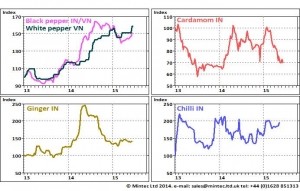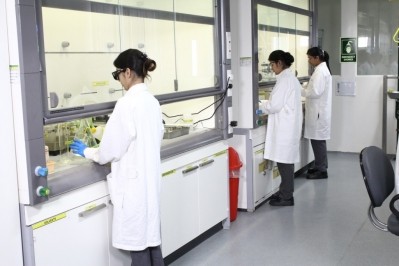South Asia radius
Supreme Court judges compel authorities to get tougher on adulteration

In public interest litigation, India’s Supreme Court has ordered the federal government and its state counterparts to take tougher steps to curb food adulteration that was “seriously endangering health of future generations”.
The notice, known as a PIL, slammed current government and state practices and sought stricter enforcement of laws while taking active steps to raise public awareness of the dangers of adulteration.
Following a recent increase in alleged cases food adulteration—most notably the wide-reaching Maggi noodles affair in which state testing claimed to find traces of lead and MSG—the judges said India was “literally driving the citizens to various health hazards” resulting in “premature death”.
The judges said they expected to see the closure of companies that were found to manufacture and market adulterated foods.
“The government of India and the state governments have failed miserably in controlling the rising food adulteration throughout the country as no strict steps are being taken to prevent and check the food adulteration,” the PIL said.
Good season for ginger, though cardamom and chill having tough time
Following a spike in 2014, Indian ginger prices have stabilised at a higher level due to high demand in domestic and export markets, according to commodities analyst Mintec.
And as a result of increased consumption of raw ginger, the availability of dried ginger has been limited.
Cardamom prices have been declining since February, falling 25%, supported by favourable weather and good production volumes.
Monthly arrivals in the market in Kochi reached 1,020 tonnes in May, up 8% year-on-year. New season arrivals, usually expected in July, might come earlier this year due to favourable growing conditions.
Chilli prices have risen in recent weeks, the result of lower arrivals at the end of the season.
Wet conditions during harvest in some southern states have had a negative impact on the chilli quality. Arrivals at Guntur market fell sharply in May, by 60% month-on-month, but were 80% higher compared to the same period last year.
In Vietnam, pepper prices have increased substantially since the beginning of 2014, driven by lower production and increased buying interest from China.
European prices have been affected by a declining euro. Output in Vietnam in the current season, where production peaked in April, is forecast to decline by between 10-15% year-on-year.
Government to reassess India’s approach to trade negotiations
India’s government will reassess the way it approaches free-trade agreements, after going through through a flurry of bilateral negotiations recently.
Central to India’s plan to increase its share of the export market, it intends to develop a more liberal regime on routing third-country goods via countries with which an agreement is signed.
Until now, India has insisted on a system where at least 30-35% value addition takes place in a country with which it signs a trade agreement.
Narendra Modi, the prime minister, ordered a review of all treaties signed by the outgoing United Progressive Alliance coalition when his Bharatiya Janata party took power in elections last year.
Modi is convinced that India can gain an export advantage after negotiations by the United States and the European Union to pursue trans-Pacific and trans-Atlantic partnerships stalled at the World Trade Organisation.
As the representatives of North America and the EU take their time, Modi is keen to negotiate a new FTA with Australia and be a founder of a regional economic partnership treaty that will create the world's largest free trade area.
The government is expected to move to a product-specific approach covering individual categories for either treaty, marking a change in stance.
The regional economic partnership, which includes China, Asean countries, Australia and New Zealand, has so far made slow progress, with India accused of holding up talks.
Sources, however, have told Times of India that the government is keen to move forward with its negotiations so that many Indian exports are not hindered by an eventual trans-Pacific partnership that does not feature the world’s second most populous nation.













